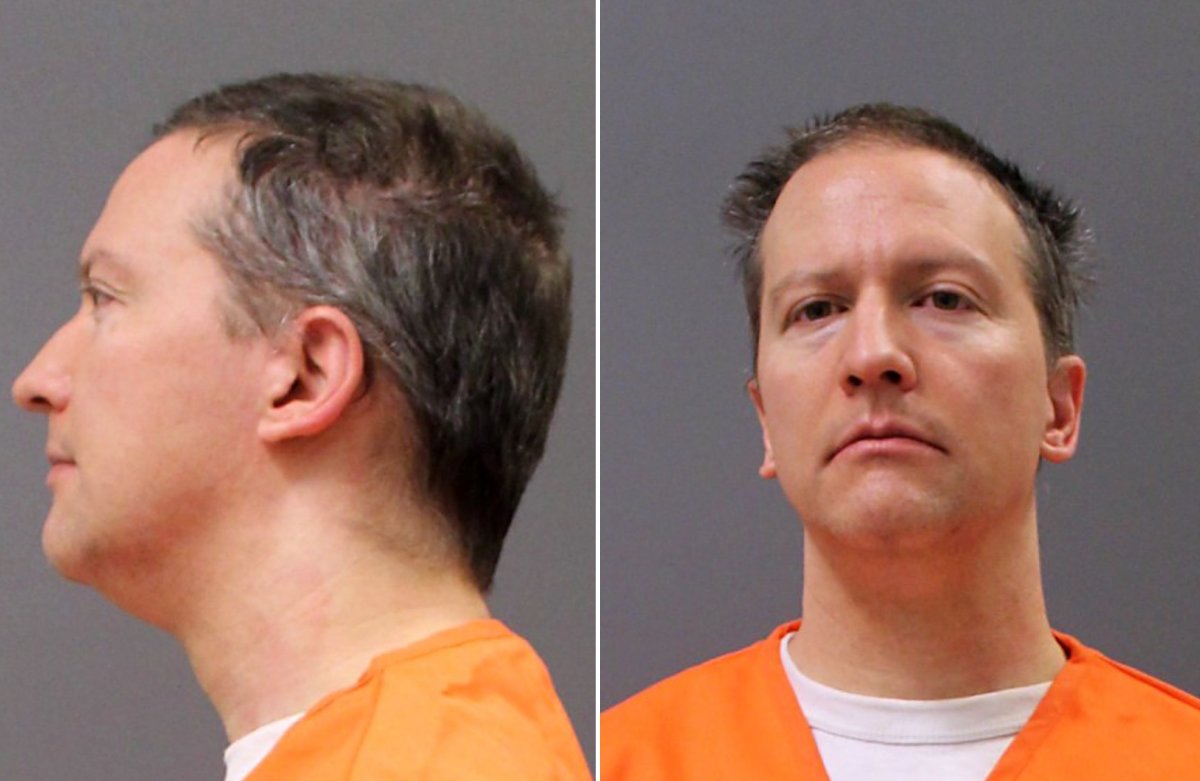Derek Chauvin, the former police officer who murdered George Floyd in May 2020, has said he cannot afford an attorney for his appeal against his conviction and sentence.
In an affidavit filed on Thursday, the former Minneapolis police officer said he currently has no legal representation and that his only income is his nominal prison wages.
Minnesota Police Department stopped funding legal representation for Chauvin, who is white, following his conviction and sentencing for the second-degree murder of Floyd, a Black man, whose neck he fatally knelt on for more than nine minutes.
He wrote: "I have been informed that their obligation to pay for my representation terminated upon my conviction and sentencing."
The 45-year-old has asked the Supreme Court to review its earlier decision to deny him a publicly financed lawyer.
Chauvin is currently serving a prison sentence of 22 years and six months.
The sentence handed to Chauvin was a decade longer than the presumptive 12 and a half years set out in state guidelines, after prosecutors successfully argued that there were aggravating factors in Floyd's death.
In sentencing, Judge Peter Cahill cited Chauvin's "abuse of a position of trust and authority and also the particular cruelty" shown to Floyd.
Chauvin intends to appeal on 14 grounds, according to court documents. These include claims Cahill made errors at key points in the case, and that the trial should not have taken place in Minneapolis after Floyd's death sparked mass protests there and in other cities against racism and police brutality.
Among the claims made in his court filing, Chauvin alleged:
- The judge abused his discretion when he denied Chauvin's request to move the trial out of Minneapolis because of pretrial publicity.
- And when he denied a request to sequester the jury for the duration of the trial, and when he denied requests to postpone the trial or grant a new one.
- The State committed prejudicial prosecutorial misconduct.
- The district court erred when it concluded that Morries Hall, the man with Floyd on the day of his arrest, would not be forced to testify on behalf of the defense.
The former officer's decision to appeal arrives within the time frame allowed. He was given 90 days from his sentencing on June 25 to lodge an appeal.
During Chauvin's trial, the jury was shown video footage showing the then-officer with his knee on Floyd's neck while arresting him on May 25, 2020.
Floyd, who was being arrested on suspicion of using a fake $20 bill, was handcuffed, restrained, and repeatedly called out "I can't breathe."

Uncommon Knowledge
Newsweek is committed to challenging conventional wisdom and finding connections in the search for common ground.
Newsweek is committed to challenging conventional wisdom and finding connections in the search for common ground.
About the writer
To read how Newsweek uses AI as a newsroom tool, Click here.








